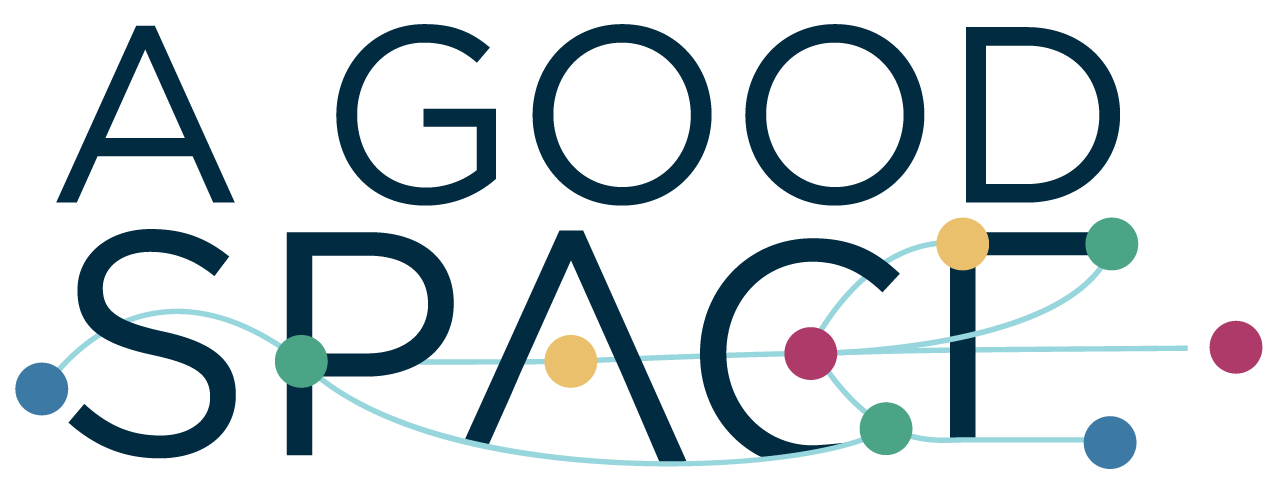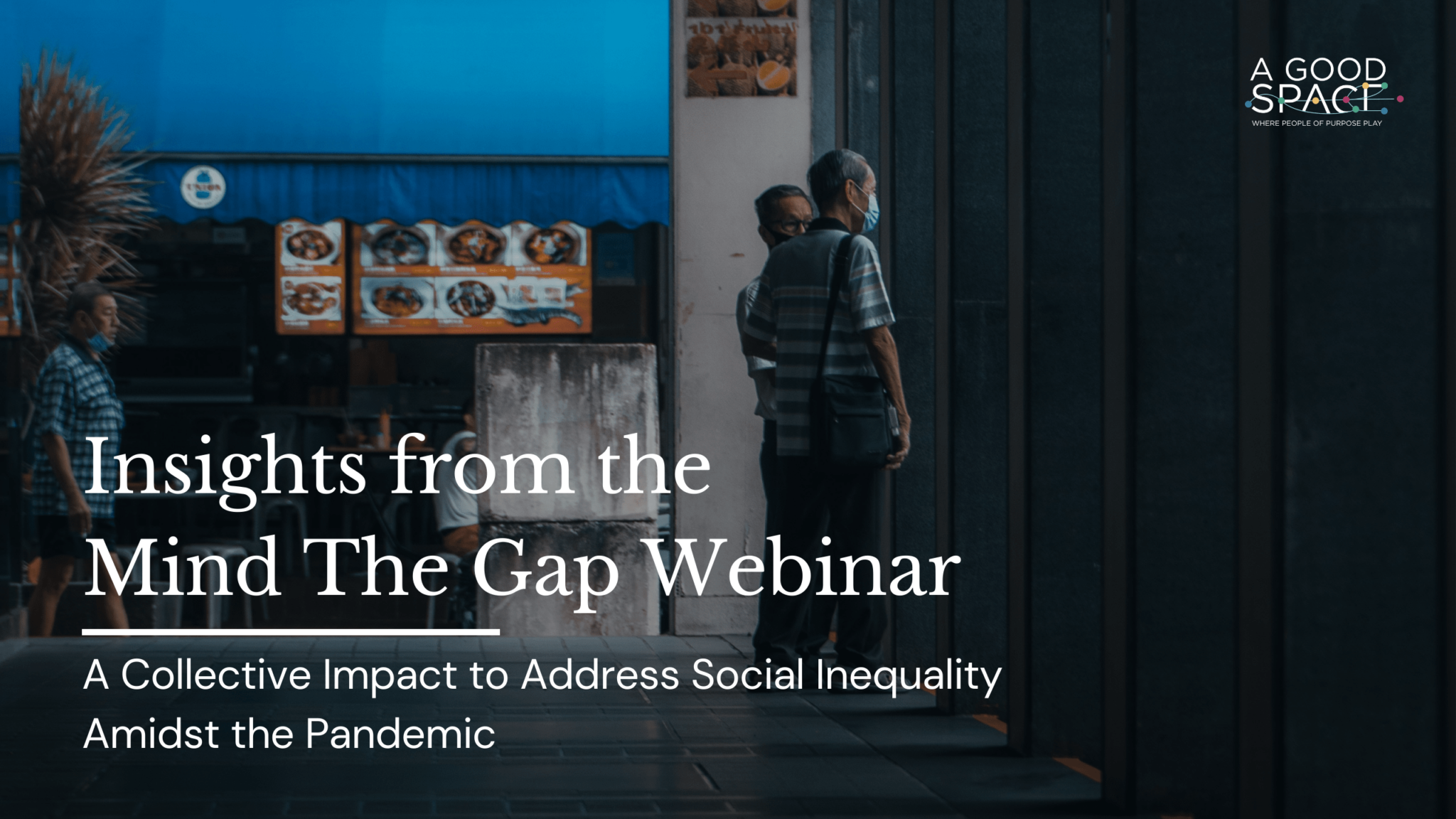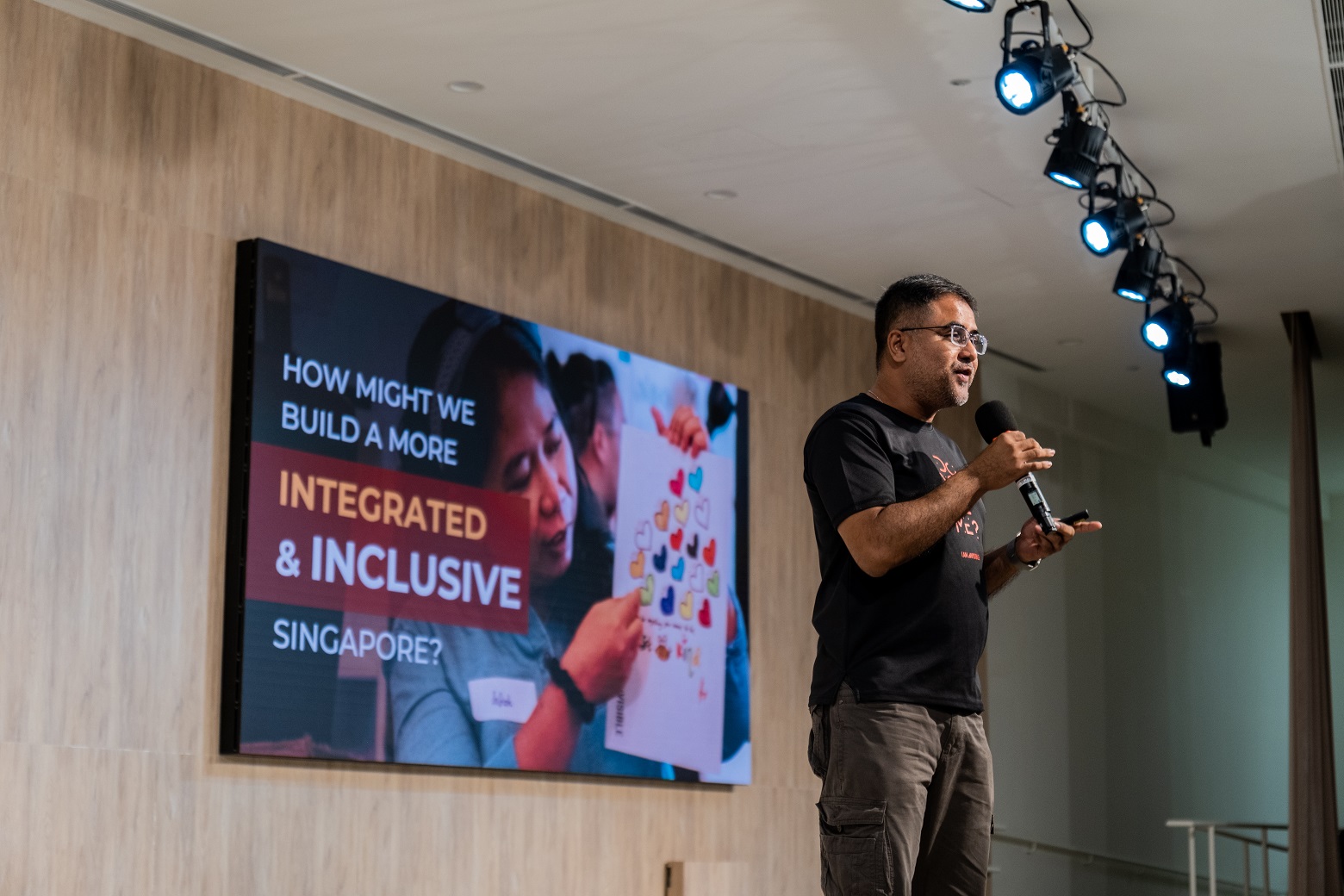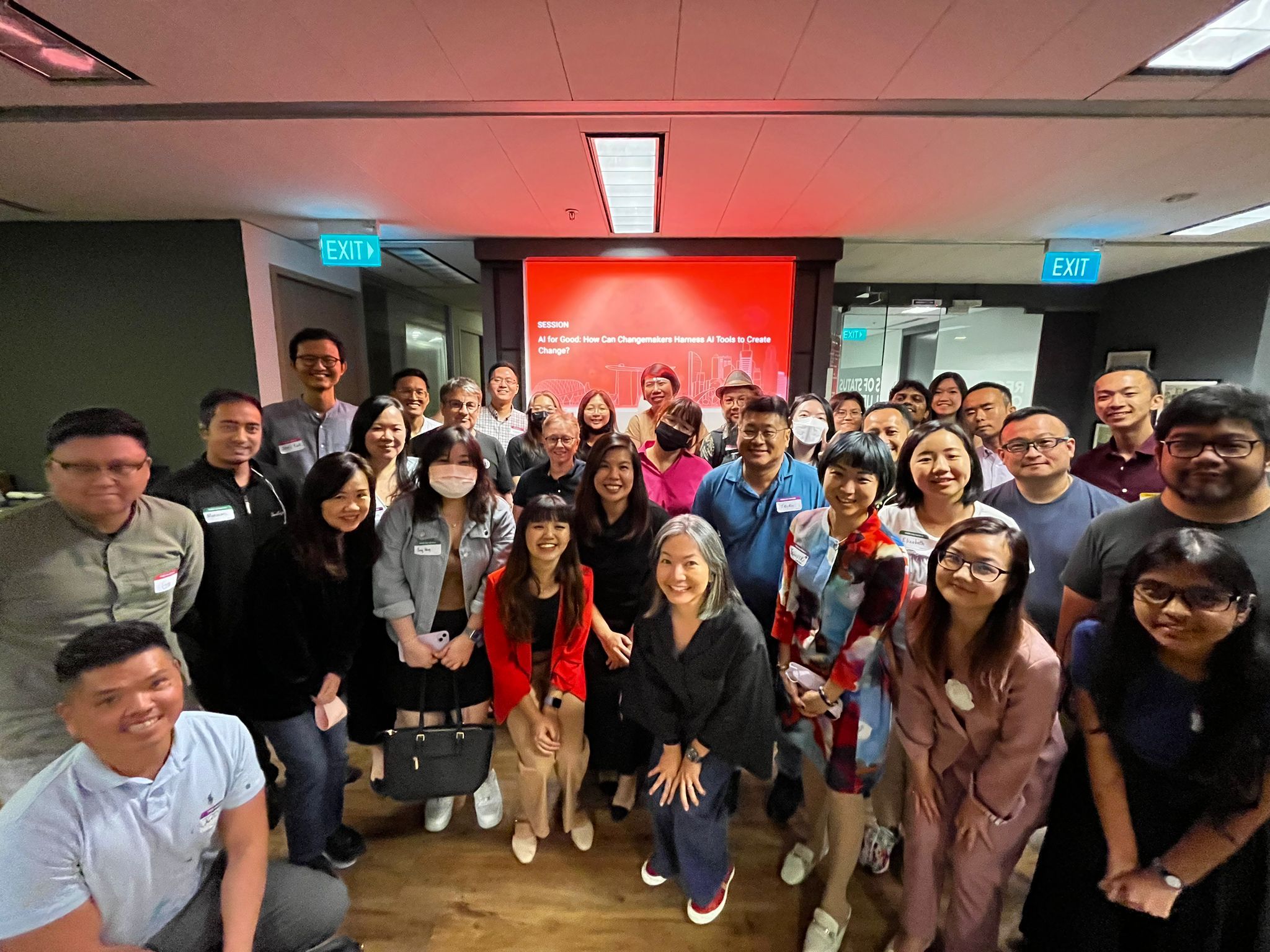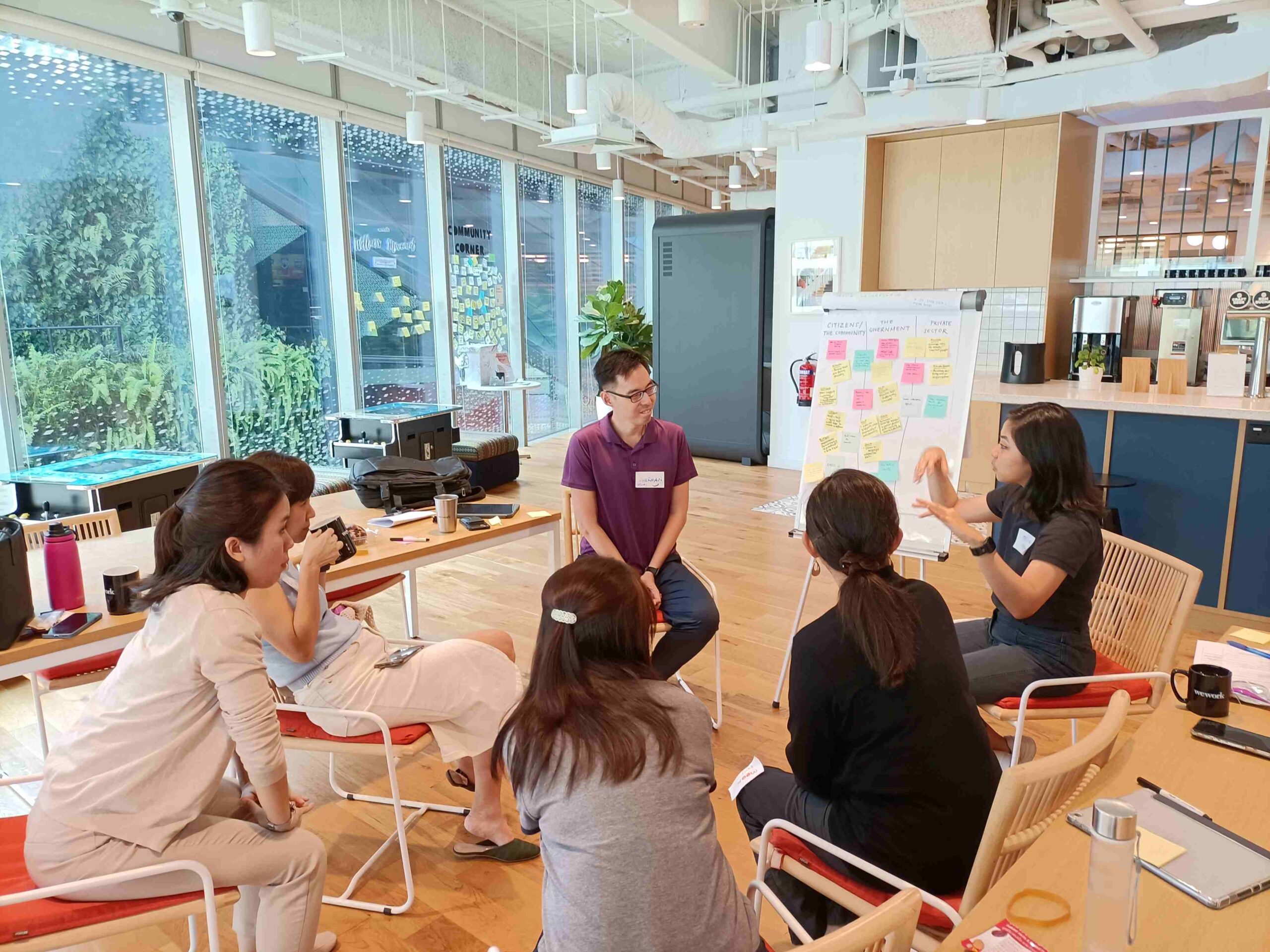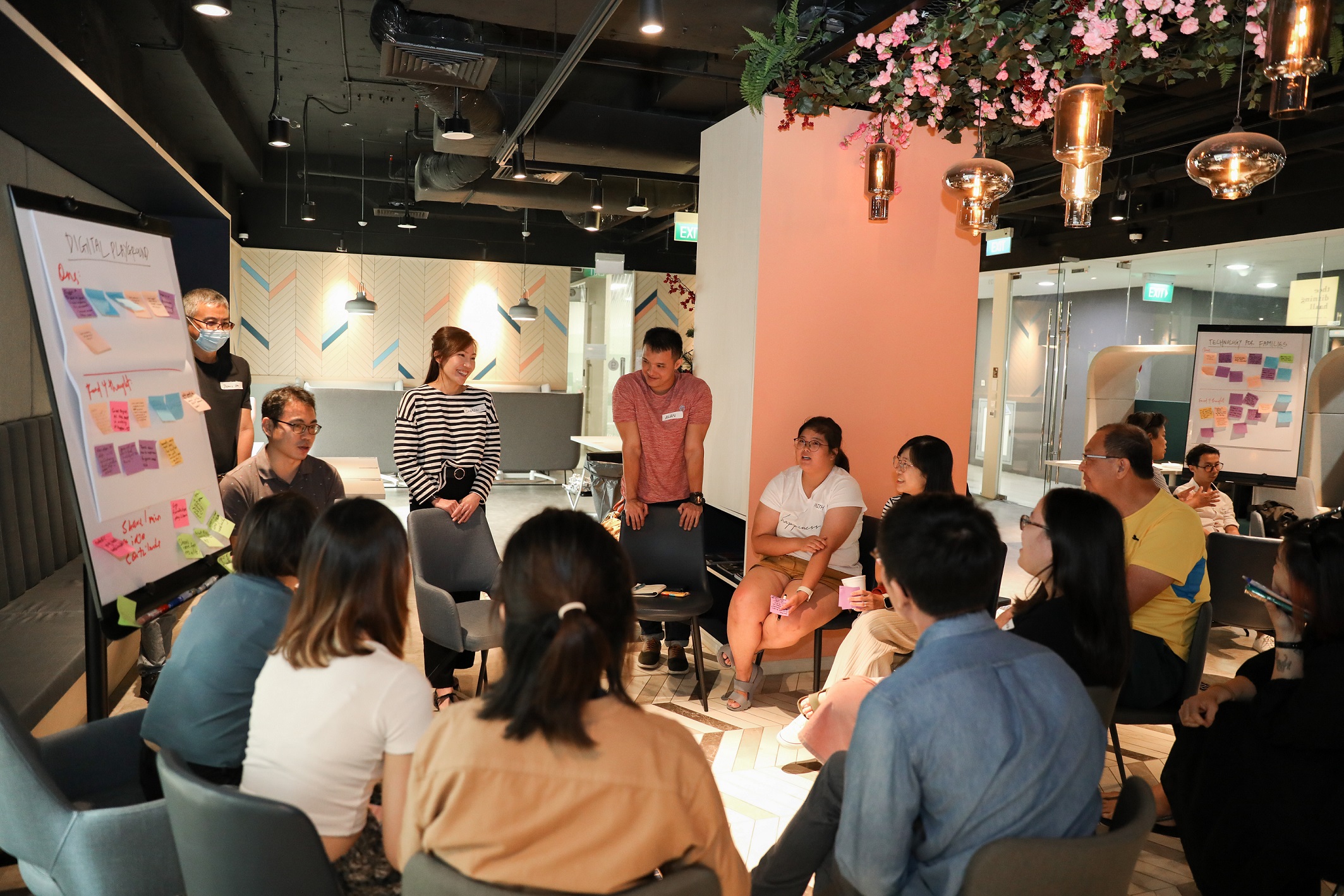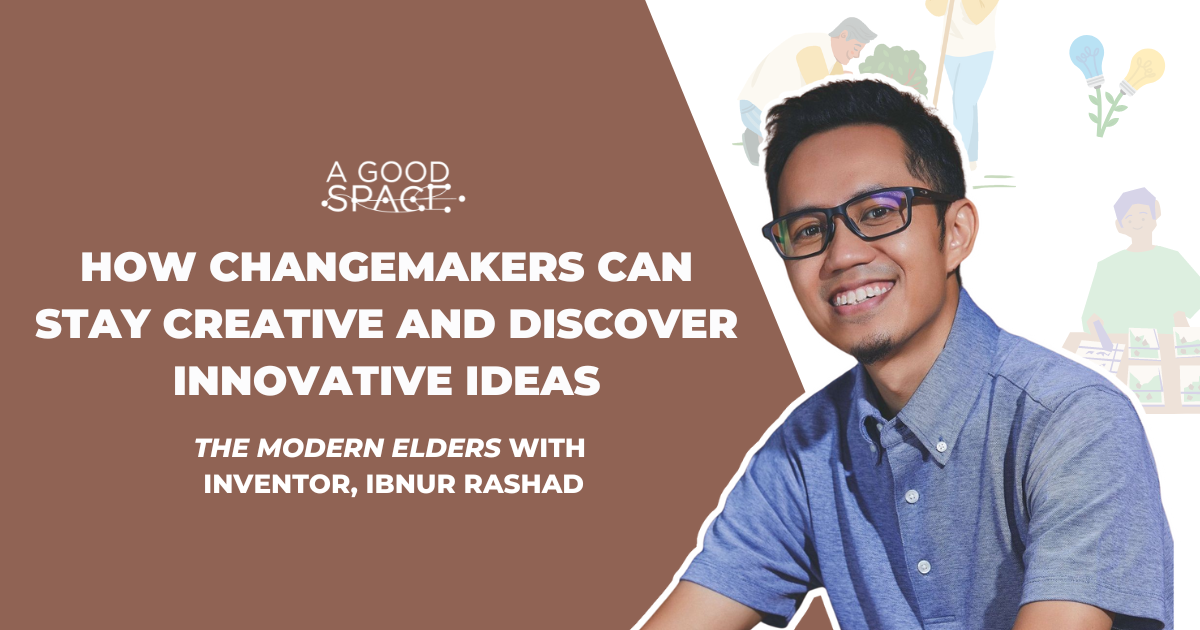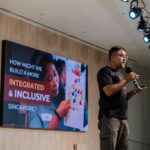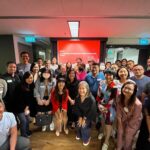Hello! I’m Canice, an intern with A Good Space. I am deeply interested in the mental wellness space, diversity and inclusion, as well as issues of social inequality, and always seek to learn more about these issues.
Hence, I jumped at the opportunity to attend the Mind The Gap Webinar on 25 May 2021. I was excited to learn more about what is being done for the low-income community in Singapore during this pandemic, and how I might apply certain insights in my own work.
Here are some of my takeaways from the experience!
What is Mind The Gap (MTG)?
2020 had been a difficult year for many of us; the COVID-19 pandemic caused drastic changes in what we had known as “normal life”.
But there are people amongst us who are disproportionately affected by the pandemic — the low-income community. With many of them losing their jobs and/or income, this community is struggling more than before to meet ends-meet, pay their bills, and other arrears.
Mind The Gap (MTG) was born out of this need.
Convened by A Good Space’s Chairperson Anthea Ong, MTG is a powerful ground-up initiative that started on 20 April 2020 after there was an outpouring of support by the public who wanted to contribute financially to the low-income community.
MTG was a collective of 8 members and 19 collaborating agencies working to disburse public donations to low-income families. It was very much a success, with 767 households benefiting from $1,128,357 raised from 585 donors.
Attending the MTG Webinar
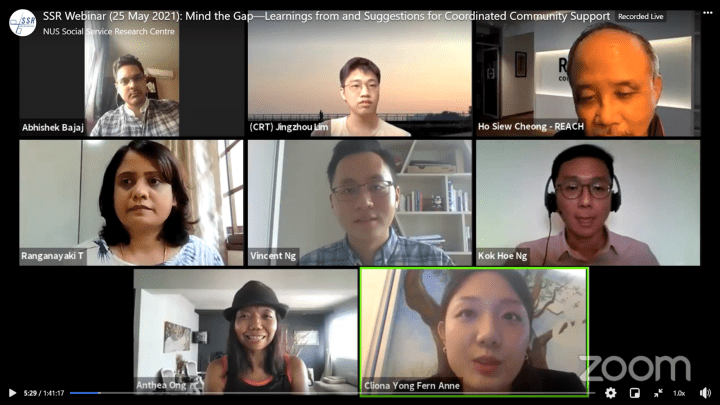
The webinar, hosted and moderated by the NUS Social Service Research Centre, aimed to share some learnings from the MTG collaboration and provide suggestions for community coordinated support. Representatives of a few MTG members were present as panelists to share their reflections from the collaboration.
After listening to their stories and sharings, here are 4 key takeaways I had:
Takeaway #1: The Power of Trust
How do organisations with different working styles, beliefs, and interests come together to collaborate? What is the “glue” that keeps them together? As someone who believes in the power of collaboration in solving complex social issues, these are questions I often ask myself.
I discovered the answer at the webinar — the power of trust.
Most of the MTG members had previously established relationships with one another through prior collaborations. They collectively agreed that their relationships of trust, openness, sharing and learning were crucial enabling factors for MTG’s success. The spirit of collaboration and desire to work together despite many differences kept the collective together.
Coupled with a sense of common purpose, which was to assist those affected by COVID-19 in an immediate manner, the strong foundation of trust allowed the collaboration to be smoother.
Yes, there were disagreements at times but the MTG members took these as learning opportunities and came out stronger. This empowered the collective to leverage on different strengths, resources, and capabilities from the member organisations.
The MTG collaboration clearly showed how the collective was stronger than the individual and that was why MTG managed to reach far and deep into different communities who were adversely affected by the pandemic.
Takeaway #2: Dignity and Compassion
Another key takeaway I had was the importance of giving dignity and compassion to everyone, simply because they deserve it. This is particularly important in the social service sector, especially during financial assistance disbursements to low-income individuals and families.
In the MTG Report written by the NUS Social Service Research Centre, it was mentioned that a barrier impeding some low-income families from applying for existing financial disbursement schemes is because the application process typically requires them to prove their neediness.
This might invoke feelings of embarrassment in them and hence they choose not to apply despite the urgency of their situation.
However, one distinctive feature of MTG is the dignity they grant to their beneficiaries.
Instead of explaining to agencies why they were in a predicament, applicants only need to submit a copy of their NRIC, an official document that allows for the verification of their bank account details for fund disbursement, the number of household members, and the main applicant’s contact details. It was an easy and fast process for households to receive financial assistance, with dignity.
I was also impressed to learn that compassion extended beyond MTG’s beneficiaries.
Each MTG member was also treated with dignity and compassion, in that they enjoyed the autonomy to determine exact disbursement processes for their beneficiaries. Giving every member the flexibility and discretion to do so accorded them respect.
Furthermore, decision-making in MTG was made on an equal partnership basis, which means that every agency had a vote and decisions were reached through consensus, despite the different sizes of the organisations.
Takeaway #3: Consistency — What does it mean?
One might be startled, as I initially was, to hear that each MTG member had the discretion to decide on disbursement processes. Would there be concerns about accountability? What about consistency?
Sure enough, a member from the audience raised this concern to the panelists: Would such a practice compromise on consistency in the way financial disbursement is done?
Anthea, one of the panelists, gave us a thought-provoking response. She mentioned that we could reimagine what “consistency” means. Instead of striving for procedural consistency (such as setting a blanket benchmark before disbursement can be given), we could strive for consistency in our intent and approach.
For example, being consistent in granting dignity and compassion to financial aid applicants, and being consistent in granting flexibility to social service organisations.
This will perhaps make us more agile and adaptable in an ever-changing external environment, especially during this time of crisis.
Takeaway #4: The Power of Ground-Ups
Lastly, I also learnt about how ground-up movements can play an important role in our social service ecosystem. MTG is a prominent example of why ground-up initiatives and collaborations are so important: They are powerful and have the potential to attain far-reaching impact.
Ground-ups often have built deep relationships over long periods of time in different communities, which enables them to reach out to persons from vulnerable communities and quickly get a sense of evolving ground needs.
This can be very helpful in complementing the work of social workers, who may be overwhelmed with new and existing cases during a pandemic and have limited capacity to perform outreach into the communities.
For example, MTG’s deep ground networks allowed them to support 2 families in Pulau Ubin, who would otherwise struggle to obtain financial aid. Ground-ups who were a part of MTG also helped to connect their beneficiaries with other formal social assistance schemes, which maximised the amount of aid these beneficiaries received.
Some final food for thought…
Beyond reimagining financial disbursement practices to low-income communities, the MTG webinar offered me fresh perspectives into what contributes to the success of ground-up initiatives.
More importantly, the webinar takeaways were timely reminders for me as I embark on my own community service projects. In our drive to help communities in need, we should not forget to pause and make sense of ground needs and concerns.
For example, when extending aid to people in need, we should simultaneously extend the greatest possible dignity and compassion to them.
I was also touched to learn that the public rallied together during a time of crisis to help the less privileged amongst us.
Social issues are persistent and pervasive, so there will always be communities that are in need of assistance. I hope that this spirit of active citizenry can be sustained, so that many more ground-up initiatives like MTG can flourish and create positive ripple effects in Singapore.
Lastly, I would like to leave our readers with a question: What else can be done to help communities in need during this pandemic? Let us know in the comments below!
If you liked this blog post and would like to stay updated on such initiatives, join our mailing list at agoodspace.org/blog/!

Canice Ho
Canice is a Programmes and Special Project Intern at A Good Space. She finds joy in the simplest things, like taking long hikes in nature and enjoying a good ice cream.
